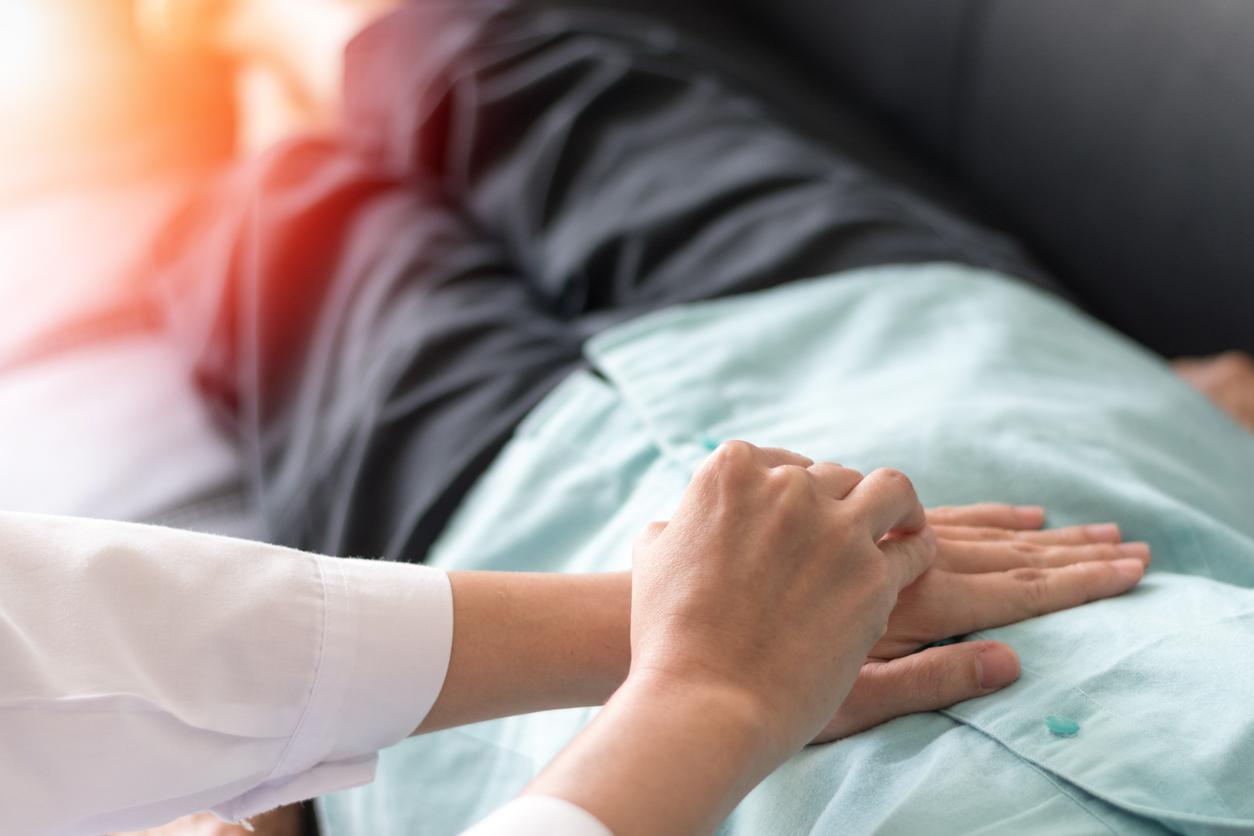
Losing more than ten clothing sizes: you can achieve that in no time with a stomach reduction. But you have to pay a lot for that.
Every year, between ten and twelve thousand people in the Netherlands have a stomach reduction. If it is up to surgeon Wouter Leclercq, more people should be operated on. “I think that ten times as many people are eligible for gastric bypass. The risks of obesity are great. Obese people with a body mass index (BMI*) of 40 die on average 12 years earlier.”
Leclercq performs the operation in the Máxima Medical Center in Eindhoven. A stomach reduction remains a big step, according to the surgeon. The operation itself is not very difficult, but you have to change your lifestyle completely afterwards. That’s scary and exciting. He even compares the change to moving to another country where you don’t speak the language and you have to walk on all fours. “Everything will be different. The day starts with a split breakfast. Eat first. You are not allowed to drink, because you cannot tolerate food and drink at the same time. Eating and drinking too much and too quickly can cause symptoms, such as nausea. You also need to exercise more and set aside more time for yourself. You’re busy with your new diet plan and pedometers and your partner might not. You are going to speak a different language. You desperately need support from your environment.”
The right hospital
To be eligible for a gastric bypass, you must have a BMI of 40 or higher or a BMI of 35 with additional diseases such as high cholesterol, sleep apnea, diabetes or high blood pressure. You first have conversations with the general practitioner or the practice nurse and then you are referred to the hospital.
There are seventeen hospitals where you can go for a stomach reduction operation, but the guidance before and after the operation is offered in many more clinics. You can therefore undergo the operation in a hospital further away and arrange the supervision closer to you.
Choosing the right hospital is quite a quest. There are basic rules for the entire process, but each clinic has its own interpretation. Think in advance what is important to you during the treatment. Surgeon Leclercq: “My advice is to pay attention to whether you have a good feeling with the treatment team. When things go wrong, it has to be there for you too: do they go the extra mile for you or are they just patching you up?”
Information round
Once at the hospital, you will be given information about the procedure and what is expected of you for a morning. You carry out the further process with a group of fellow patients. You can share experiences with them.
That’s nice, because once you knock on the door of an obesity clinic, you’ve already been through quite a bit. Leclercq: “People often have had a life of dieting, losing weight and gaining weight again. People are fighting an internal battle. They must see for themselves the necessity and conclude that they no longer want to be much overweight. Only then are they referred to the surgeon.”
After the information round, you will have individual conversations with a dietician, physiotherapist, nurse and psychologist. This multidisciplinary team discusses the results of the interviews and determines which treatment is most suitable on the basis of personal characteristics and physical condition. Sometimes a patient still has to work on himself before an operation is called for, for example living a healthier life and exercising more or tackling psychological problems. “In our hospital, about half of the patients registered for the screening are operated on,” says Leclercq. “A quarter embarks on a personal process and a quarter is referred elsewhere.”
You will be admitted for a day or two before the operation. The procedure is similar to gallbladder surgery. This is in the same area in your body and is also done with keyhole surgery. You will have pain for about two days, against which there is good pain relief.
Gastric bypass or sleeve
There are roughly two types of gastric reduction surgery: the gastric bypass and the gastric sleeve. Which surgery someone gets depends on a variety of medical factors.
The gastric band, another type of gastric reduction, is still very little used because the results were disappointing.
The gastric bypass is the most common surgery. Using a viewing tube, also called a laparoscope, the surgeon divides the stomach into two parts. He makes a kiwi-sized mini stomach from one part. He then attaches the small intestine to this pouch, which will function as a stomach. Then he connects the large remaining part of the stomach and a piece of the small intestine to the intestines as a bypass further down. This leftover piece of intestine and stomach still produces a lot of digestive juices, but it is no longer a ‘collection bag’ or digestive organ.
With a gastric sleeve, an operation technique that is less common in the Netherlands, part of the stomach is removed. In this case, the size of the stomach is about 60 to 80 percent. The stomach contents where food enters is greater than with the bypass method.
“It’s better not to get a sleeve for someone who easily belches stomach acid; he or she benefits more from a bypass,” says Leclercq. “But it is difficult to predict in advance who will experience which disadvantages in one of these operations. There is a range of side effects afterwards. Sometimes, for example, you are less resistant to dairy products. It is very annoying if you have a lot of trouble with that, because then you get stomach cramps. Milk products are a good fit for most people with a sleeve.”
Losing weight and gaining weight
The vast majority of people with gastric bypass surgery lose weight immediately after surgery. Yet about 15 percent of people gain weight again. Causing? According to Leclercq, this is because these people usually have too much trouble making long-term changes to their lifestyle. “After this operation you have to live very differently. For example, you should continue to exercise and not eat a lot. If you stop moving and start eating a lot of sweets so that your stomach slowly expands again, you will gain weight again.”
In addition, there can be medical reasons that you still gain weight despite a stomach reduction. There is not much clarity about this. Research is being done on this at home and abroad.
No reimbursement for 65+
In the Netherlands, health insurers reimburse gastric reduction for people up to 65 years of age. According to Leclercq, from a medical point of view, there is no upper age limit for gastric reduction. “It depends on whether someone else is missing something. If you are 65 years old and also have other ailments, the risk of problems after surgery is greater than for a 20-year-old who is fine.”
The risk of heart problems, lung infection or anastomotic leakage increase if you have additional diseases in addition to being overweight. And the older you are, the more likely you are to develop additional diseases. It also depends on how long someone is overweight. In someone who was already overweight at 18 and who is now 65, organs such as the heart and pancreas have had to work extra hard and the joints have started to wear more quickly.
“I look at the risks of the operation,” says Leclercq. “I very rarely turn someone down for surgery on medical grounds, because you will get better quickly after the surgery.”
Sometimes things go wrong after surgery. About 1 percent of the operated people will have an after-bleed. This can be treated well in the hospital.
The new life
For most people, once operated, a new life will begin. However, not everyone responds well to a reduced stomach. There are people who become very nauseous from food, have difficulty eating and drinking and often vomit. Even if they eat very little. Doctors don’t have a solution for this yet. Scientific research is being done on this.
But Leclercq often sees satisfaction in his patients, even if they are a bit older, for example over 60 years. “People say they struggled for years against being overweight and say they should have done it years ago. Overweight people in our society suffer from prejudices and negative images. People carry that stigma with them. While there is a solution.”
Would you like to read more about the risks of gastric bypass? Read the article: the risks of a stomach reduction

















